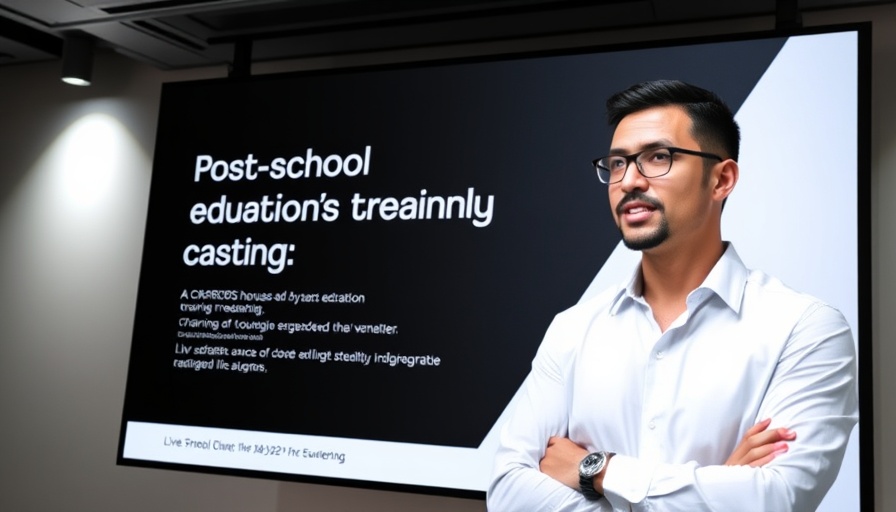
Education and Economic Growth: A Perfect Match
As we step into a world rapidly transforming due to technological advancement—a world some have dubbed the Fourth Industrial Revolution—education becomes more crucial than ever. Imagine if the power of education could lift communities and foster economic growth. The ongoing discussions around education-led growth highlight this possibility by emphasizing the importance of curriculum reforms that prioritize science as well as other critical knowledge areas.
STEM Education: A Game Changer
STEM education, which stands for Science, Technology, Engineering, and Mathematics, first made headlines for addressing workforce needs in these fields. However, its significance is expanding to encompass broader economic implications. For professionals and parents alike, understanding the nuances of STEM can illuminate pathways for children, ultimately shaping the next generation of innovators and problem solvers.
Transforming Under-Resourced Schools
One pivotal aspect of education-led growth is addressing talent shortages in poorer communities and under-resourced schools. Often, these schools grapple with inadequate resources, limited exposure to essential curriculum content, and a lack of trained science teachers. Creative approaches like 'science-on-a-shoestring' and community-based learning initiatives help solve these challenges, directly impacting students' educational experiences.
Inquiry-Based Learning: Engaging Young Minds
Inquiry-based learning places students in the driver's seat and promotes self-directed learning. This educational approach encourages students to ask questions, explore solutions, and foster a deeper understanding of scientific processes. By shifting the focus from traditional rote memorization to a more active form of learning, educators can enrich learning experiences while enhancing cognitive skills and affective engagement among students.
The Role of Indigenous Knowledge in Curriculum
Incorporating indigenous knowledge into the curriculum allows students to connect personally with the content they study. When students see relevance in what they learn, they become more engaged. It’s vital for both parents and educators to advocate for inclusive curriculums that reflect diverse knowledge systems to enrich learners' educational journeys.
Future Predictions: What Lies Ahead for Education?
With ongoing discussions around educational reform, one can speculate about future trends. Will we see a movement toward more personalized learning experiences? Experts assert that technology could provide tailored learning experiences, complementing a constructivist approach that embraces cultural-historical activity theory. Additionally, the integration of ICT in education will likely expand, offering new media and access to information that can further enhance scientific literacy.
Championing Teacher Training and Development
A central piece of the education puzzle involves empowering teachers through effective professional development and training. By focusing on pedagogical content knowledge in science education, we can ensure that educators have the tools to foster an engaging learning environment. Well-trained teachers translate to improved learner outcomes, shaping proficient future generations.
Overcoming Challenges in Science Education
In taking bold steps toward education-led growth, we must recognize and confront the challenges prevalent in science education today. From disparities in access to quality resources, such as laboratory equipment to a shortage of qualified science teachers, tackling these obstacles head-on is critical for turning our bold ambitions into reality.
Ready to Innovate?
As we explore the exciting possibilities to transform education and uplift communities, it’s crucial we act. Whether you're a parent advocating for your child’s education, an educator seeking to innovate, or a professional considering the impact of educational policies, take a moment to ponder how you can contribute. Engage in meaningful discussions, support local education initiatives, and encourage the exploration of STEM subjects. The future of economic growth might just depend on how we prioritize education today.
 Add Row
Add Row  Add
Add 




Write A Comment